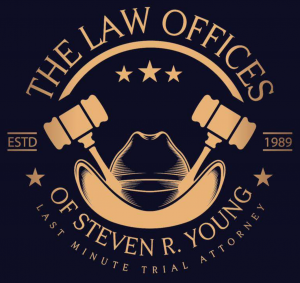Robin Williams was an important part of my law school experience. In 1978, I was a second year law student, supporting a wife and our eight-month-old son while attending school full time. My schedule was crowded. In the morning I went to classes. When classes were finished, I drove to a law office where I worked every day until 7:00 p.m. I’d return home, eat dinner with my wife and son, then go to the library to study until 11:00 p.m.
Tuesday nights were different. After Tuesday dinner I engaged in a luxury to preserve my sanity: I watched the insanity of Robin Williams on Mork and Mindy.
Mork and Mindy was not an original concept. During the 60s “My Favorite Martian” staring Bill Bixby and Ray Walston portrayed a Martian visiting earth known only to the good-hearted earthling who allowed the Martian to live with him. By all counts, Mork and Mindy had no chance as a repackaging of My Favorite Martian. But Robin Williams took the storyline of a visitor from outer space with a secret identity to a whole new level. He arrived in an egg-shaped spacecraft, when he sees eggs on Mindy’s counter he thinks, visitors from space, and lofts an egg into the air saying, “Be free and fly.” Gravity being what it is the result was obvious and my laughter at the absurdity was joyous.
Robin Williams’ Gift
Robin Williams’ gift was the ability to take a character, analyze it, incorporated into himself, and then stretch to exaggeration either in drama as in “The Fisher King,” or comedy with “Mrs. Doubtfire.” That is his genius.
Williams was high-energy, high intellect, high output, high influence.
In the Moment During Trial
This constellation of characteristics that drew people to Williams is the same set of characteristics that can serve one very well in trial. It is by establishing an empathetic connection with a jury that we are able to draw them to ourselves, engage them in our story, and have them help bring justice in the courtroom. An example: many years ago I was conducting a last minute trial on behalf of a woman and her son who had been T-boned at an intersection by a 78-year-old driver who ran a stop sign. The mother was driving a minivan. She suffered a broken arm and mild concussion with other injuries. Her son suffered greater injuries. The crash was so great that it flipped the boy upside down and left him dangling in his seatbelt. He broke several bones including his iliac crest. He was screaming wildly in pain.
The mother hearing his screams managed to open her door, get out of the van, go to his side of the van, and with one arm unfasten the seat belt, lift her son and remove him from the van through a rear window. Upon getting him out of the van, she slid to the ground and sat holding him in her lap as he screamed uncontrollably with pain.
When I delivered the opening statement in that case, I reenacted that scene of the mother with one arm, removing her son then sliding to the ground. I did this in front of the jury. I delivered the remainder of my opening argument as the mother sitting on the floor in front of the jury box. The jurors craned their necks to see what I was doing on the ground. A juror on the back row stood up to make sure she could see what was happening.
I completed my opening and returned to my seat. The defense attorney didn’t seem to know what to do with this. In fact after the trial he made two comments that stuck with me. “Steve, you are death on a cracker.” (If you can explain that to me I would appreciate it because I didn’t think to ask him what he meant.) The second was, “Your opening wrapped me around the axil and I could never get back on my feet in the case. The jury was in your camp from the beginning.”
The judge in that case still talks to me about that opening statement. “I have never had anyone deliver an opening sitting on the floor.”
Acting is the Creation of Reality in Story.
What does this have to do with Robin Williams? Acting is the creation of reality in story. It triggers mirror neurons in our brains so that we are unable to distinguish between what we are watching and actually doing it. Jurors confronted with a story, empathetically experience what is happening. That is the power of Robin Williams. What we saw him do, what we heard him say, what he did with his voice, triggers us so that we are the outrageous character on the stage, even if we are reserved and shy and “could never do that.” We empathetically connected with him. That is why there is such an outpouring of love for someone that most never met, but only watched and enjoyed. We love him for his outrageousness.
Robin Williams can be a great teacher for trial lawyers, if we but trust in ourselves and exist in the moment, as he did, when we are in trial. I will miss Robin Williams but I will cherish my memories of him. He was a kind, gentle man, with an outrageous imagination, and a nonfunctioning edit button.

